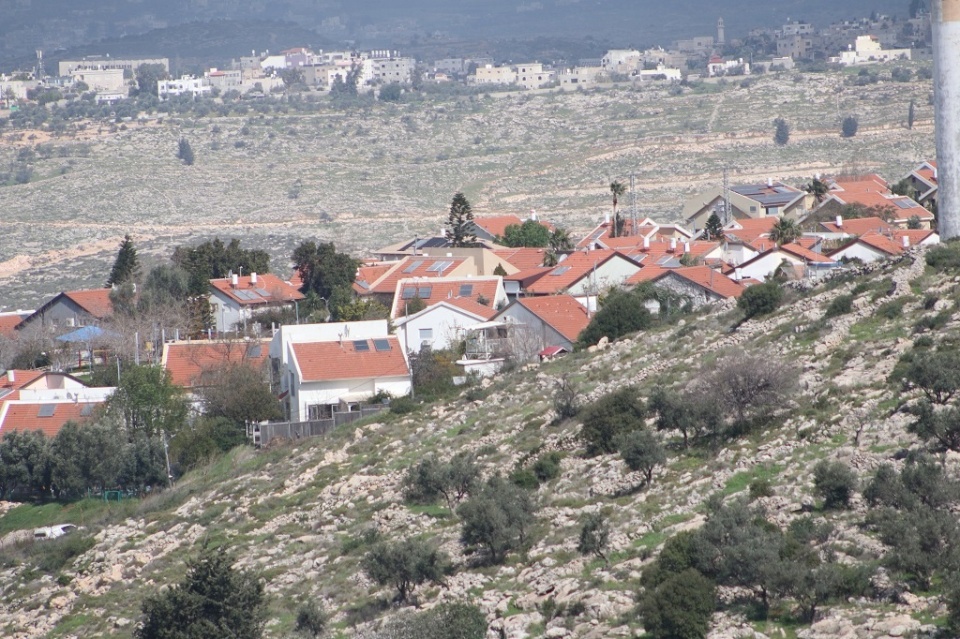
Human Rights Organization: Accelerating Colonialism East of Jerusalem Threatens Bedouin Communities in Anata, Hizma, and Jabaa
SadaNews - The Baidar Organization for Human Rights stated that the accelerating colonialism east of Jerusalem, part of the E1 colonial plan, constitutes a dangerous escalation targeting the towns of Anata, Hizma, and Jabaa as well as the surrounding Bedouin communities, amidst attempts to change the Palestinian geography in a way that threatens the territorial continuity of the West Bank.
The organization clarified in a statement issued today, Saturday, that settlers have recently begun to establish a new colonial outpost on the land of Anata, near the Bedouin communities of Abu Ghalyeh and Al-Ara'ra, in parallel with similar movements in the lands of Hizma and Jabaa northeast of Jerusalem, as part of a systematic colonial project.
It added that these movements come in the context of the E1 plan, which aims to connect the "Ma'ale Adumim" settlement with the city of Jerusalem, which practically means cutting the geographical continuity between the northern and southern West Bank, and surrounding East Jerusalem with a colonial belt that suffocates any future possibility of making it the capital of an independent Palestinian state.
The organization emphasized that the towns of Anata, Hizma, and Jabaa, in addition to the scattered Bedouin communities within them, are located in the heart of the area extending between northeast and east Jerusalem and the "Ma'ale Adumim" settlement, forming the only passage that connects the northern West Bank with the southern part, which makes the recent colonial activities more dangerous.
It pointed out that the E1 plan, which extends over about 12 square kilometers, was proposed since the 1990s but faced widespread international objection, while it is now being gradually implemented through the establishment of small unannounced outposts, in preparation for linking them to bypass roads, military camps, and barriers, leading to the isolation of East Jerusalem and leaving the Bedouin communities besieged as separate islands.
It stated that the residents of the Bedouin communities in the area rely on agriculture and livestock herding as their main source of livelihood, and with the rising colonial activity, they are being prevented from accessing their lands, and large areas are being seized under the pretext of "State Land" or "Military Training Areas," in addition to demolishing homes and facilities under the pretext of unauthorized construction, in a gradual displacement policy that violates the Fourth Geneva Convention.
It added that what is happening in the E1 area represents a "point of no return" in the course of the two-state solution, as linking the "Ma'ale Adumim" settlement with Jerusalem through Anata, Hizma, Jabaa, and the surrounding Bedouin communities will separate the West Bank into two isolated areas and undermine the possibility of establishing a geographically connected Palestinian state.
The Baidar Organization for Human Rights called for the documentation and updating of field maps to show the connection between the new colonial outposts and the E1 plan, urgent international action to stop the project and impose an immediate freeze on colonial construction east of Jerusalem, and to protect the Bedouin communities by providing urgent legal and humanitarian support, activating the advisory opinion of the International Court of Justice (July 2024), and pressuring to impose sanctions on the parties implementing the projects in the occupied territories.
It confirmed that what is happening in Anata, Hizma, Jabaa, and the surrounding Bedouin communities is part of a plan targeting the re-drawing of the map of the West Bank according to Israeli interests, turning the towns and communities into isolated mosaics under colonial encroachment, and weakening the chances of implementing a two-state solution.

Occupation Continues to Cut Settler Road East of Tamoun South of Tubas

Italy Plans to Send Air Defense Assistance to Gulf States

Occupation Army: 300 Iranian Defense and Missile Systems Neutralized

12 Countries Seek to Mediate to Stop Iran War

Iran Denies Launching Missile Toward Turkey

The Occupation Seizes a House in Deir Astiya and Turns It into a Military Barracks

Weather: Slight Increase in Temperatures

